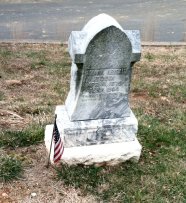In Knocking on Heaven’s Door Katy Butler writes, “Once upon a time we knew how to die. We knew how to sit at a deathbed. We knew how to die and how to sit because we saw people we loved die all through infancy, childhood, youth, middle age, and old age: deaths we could not make painless, deaths no machine could postpone.” She goes on to say that a good death was not one with an absence of suffering but rather the dying person’s ability to meet death with faith, with courage, and with acceptance. Once the process of dying was complete, the family washed the body, wrapped it in a shroud or sheet, and buried it directly into the ground. Decomposition began and the dead returned to the earth. Yes, I admit it: I used to sing, “the worms go in, the worms go out, the worms play pinocle on your snout.” Yes, I’m an avid composter.
In The Care of the Aged, the Dying, and the Dead, published in 1935. Alfred Worcester noted that under earlier burial customs “mortuary occupancy of the ground” was only temporary. He points out that after roughly a century of use for burials, nearly nothing would be left of those occupying the graves and the land would be returned to use for the living, often as parks or breathing spaces in crowded municipalities. Indeed, if land were to be used solely for the purpose of a single burial and the gravesite preserved in perpetuity, real estate available to the living would become extremely rare. Just imagine how crowded together the living descendents of the Boomers would be as this huge generation ages and dies!
With institutionalization of caring for the dead, the commercialization, and the introduction of the concept of perpetual care cemeteries where the dead can rest peacefully for eternity, people have become attached to the idea that remains must not be disturbed. Sometimes they even give priority to the dead over the living. An example of this was reported in the Washington Post recently: http://wapo.st/1c9JnEW
Have you thought about how you want to be cared for immediately after death? Have you discussed how your parents or spouse want to be cared for? Neglecting to consider this important aspect of the life cycle won’t change the final outcome: we don’t get out of life alive.
class=”size-full wp-image-362″ /> Tombstone Surrounded by Shopping Center and Development[/caption]
 Todays Gray Matters Valuing the Wisdom & Purpose In Aging Well
Todays Gray Matters Valuing the Wisdom & Purpose In Aging Well
